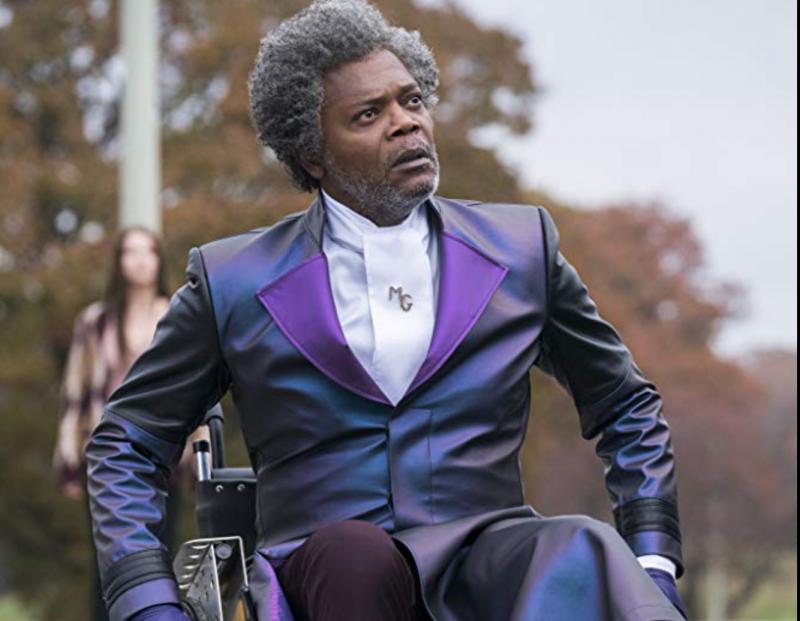Shyamalan’s ‘Glass’ is underwhelming
It’s interesting M. Night Shyamalan often deals with the duality of man in his works, for I often say I wish Shyamalan the film director would separate from Shyamalan the screenwriter.
As a director, he has a sharp eye, attention to detail and appreciation for the language of film that renders many of his works visually assured and arresting. Unfortunately, he also allows himself to serve as writer for his films, which frequently can torpedo his most polished projects. After “The Sixth Sense,” he was able to catch lightning in a bottle early in his career with “Unbreakable” in 2000, an unorthodox take on the superhero genre (before superheroes were “a thing”) starring Bruce Willis and Samuel L. Jackson. After that, his films took a downward trajectory until his name was essentially a punchline.
Then, in 2015, he released a minor creepy horror film called “The Visit,” which earned him some long-lost credibility. This was only bolstered the following year with “Split,” which many saw as a return to form, led by a solid, over-the-top performance by James McAvoy. “Split’s” post-credits scene had teasingly tied the film to “Unbreakable,” and expectations skyrocketed.
It was a curious connection, as “Unbreakable” was a more meditative and reflective film that featured one of the most nuanced performances of Willis’ career, and “Split” was more of a pulpy, lurid, action-packed thriller where McAvoy’s performance was many things, but far from what one would call “nuanced.”
But here we are with “Glass,” Shyamalan’s 20-years-in-the-making conclusion to “Unbreakable,” bringing the characters of the two disparate films onto the same stage. The result is not only underwhelming, but has the potential for being the director’s cinematic nadir – and this is the man who directed “After Earth,” “The Last Airbender” and “The Happening”.
“Glass” picks up 19 years after “Unbreakable” and a few weeks after the events in “Split,” and finds Mr. Unbreakable (Willis) – the man who discovered he cannot be injured – running a small security firm in Philadelphia with his now-grown son, and spending the evenings stalking evildoers as a mysterious rain-poncho-wearing vigilante. He’s able to to sense evil by touch, so he essentially strolls the streets casually accosting citizens, eventually bumping into James McAvoy’s multi-personality abductor whom I will call Mr. Split.
Mr. Split is up to his old tricks, with a gaggle of cheerleaders shackled in an empty factory where all the personalities living in his brain promise to introduce them to “The Beast.” When Mr. Unbreakable has visions of this, he sets out to free the girls and do battle with Mr. Split. This results in both of them being captured by local law enforcement and taken to a nearby psychiatric research facility, which currently houses Mr. Glass (Jackson), a brittle-boned evil genius living in a semi-catatonic state under the care of Dr. Ellie Staple. Staple is played by Sarah Paulson, and if you were previously unaware of her, you will certainly come to know her well, as about one-fifth of the film is spent with her delivering expository dialogue while staring directly into the camera.
Staple specializes in a disorder which causes people to believe they possess superhuman abilities, and she spends a good chunk of the film trying to rationalize away our three leads’ behaviors. And while two-thirds of Staple’s patients are murderers, the facility somehow seems to be one of the most understaffed hospitals in the tri-state area, as Mr. Glass, Mr. Split and Mr. Unbreakable are left unattended for long stretches as they plot their escapes.
As mentioned, “Unbreakable” was released prior to the Marvel boom, and one of the problems with “Glass” is that it takes inordinate amounts of its runtime to lecture on the most pedestrian mythos of the superhero culture, as though we’ve never been exposed to Men of Iron, Spider or Bat. It’s similar to watching an instructional video on how to use the same computer you’ve been using for years.
And although he’s the title character, Jackson’s “Glass” sits twitchy and wordless for the first hour of the film. Sure, he’s commanding (until he dons his Prince-inspired evil getup), but he’s far underused. Willis, who has spent the last decade physically on screen and mentally spending his paycheck, seems to have given up here as well, as the film contains a couple brief clips apparently left on “Unbreakable’s” editing room floor that give hints to what talent he once possessed. Hell, at least Mark Wahlberg managed to lift an eyebrow in “The Happening,” which is more effort than Willis displays throughout “Glass.”
Which leaves McAvoy, who is given far too much time to showboat and prance about with his various “personalities.” In “Split” there was a level of tension as to who was going to emerge in a particular scene, but it’s used so often in “Glass,” it’s like a Vine collection of his charade impersonations.
Acting aside, the forced braiding of the two prior films is narratively ill-conceived. The fact that Shyamalan served as director of both does not mean they fit together; it’s like asking the late Stanley Kubrick for a crossover of “2001: A Space Odyssey” and “The Shining.”
And the left-field ending not only feels undeserved, but threateningly prophetic of some Shyamalan-iverse that no one is asking for. “Glass” fails on so many levels that the promise of anything more comes across as a threat.





















































